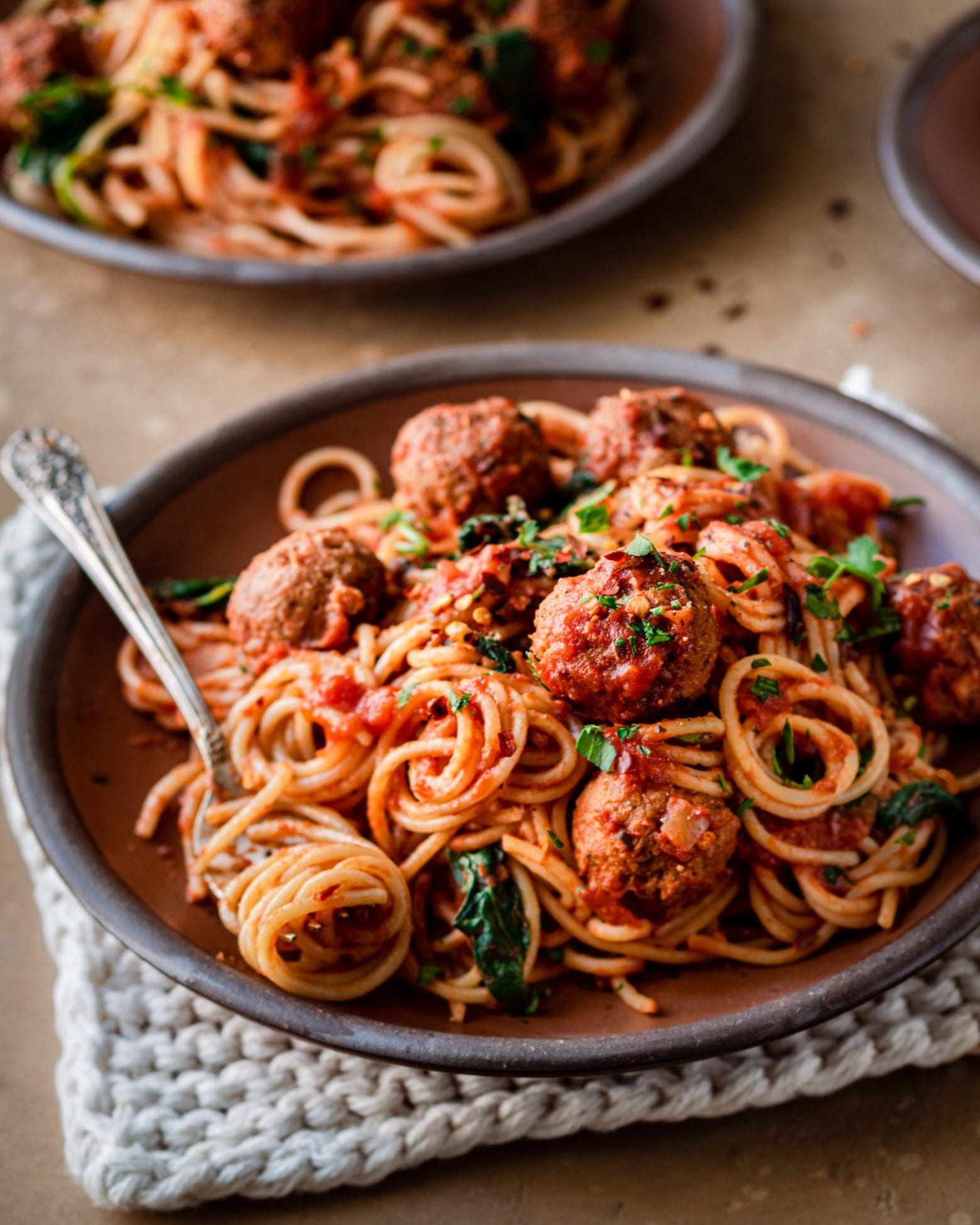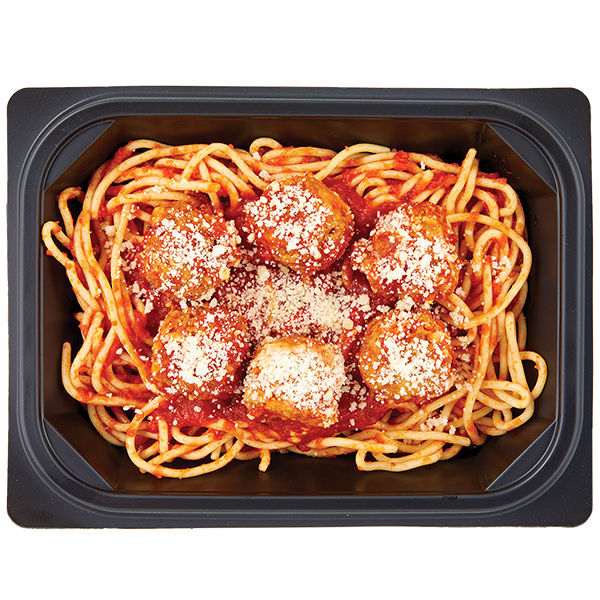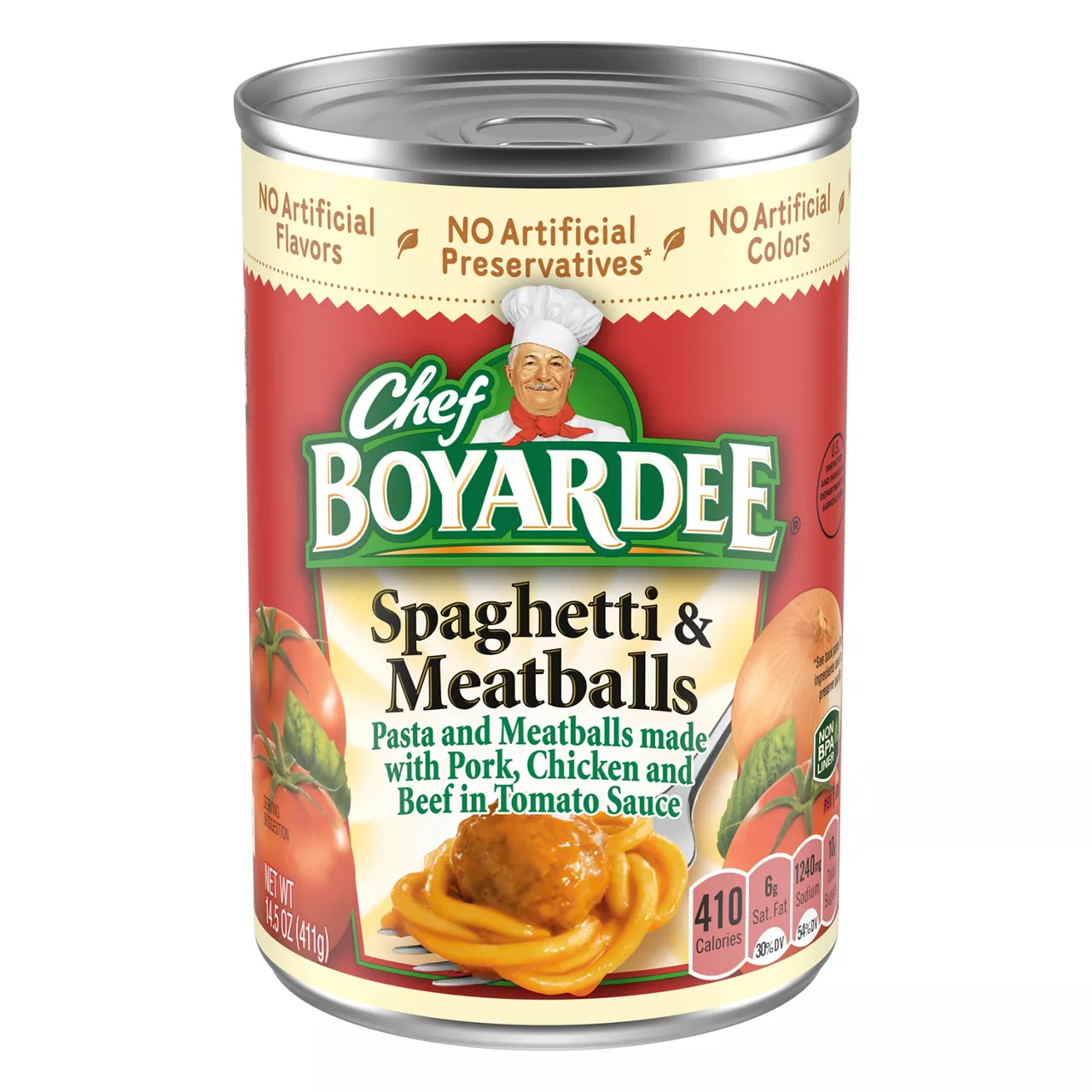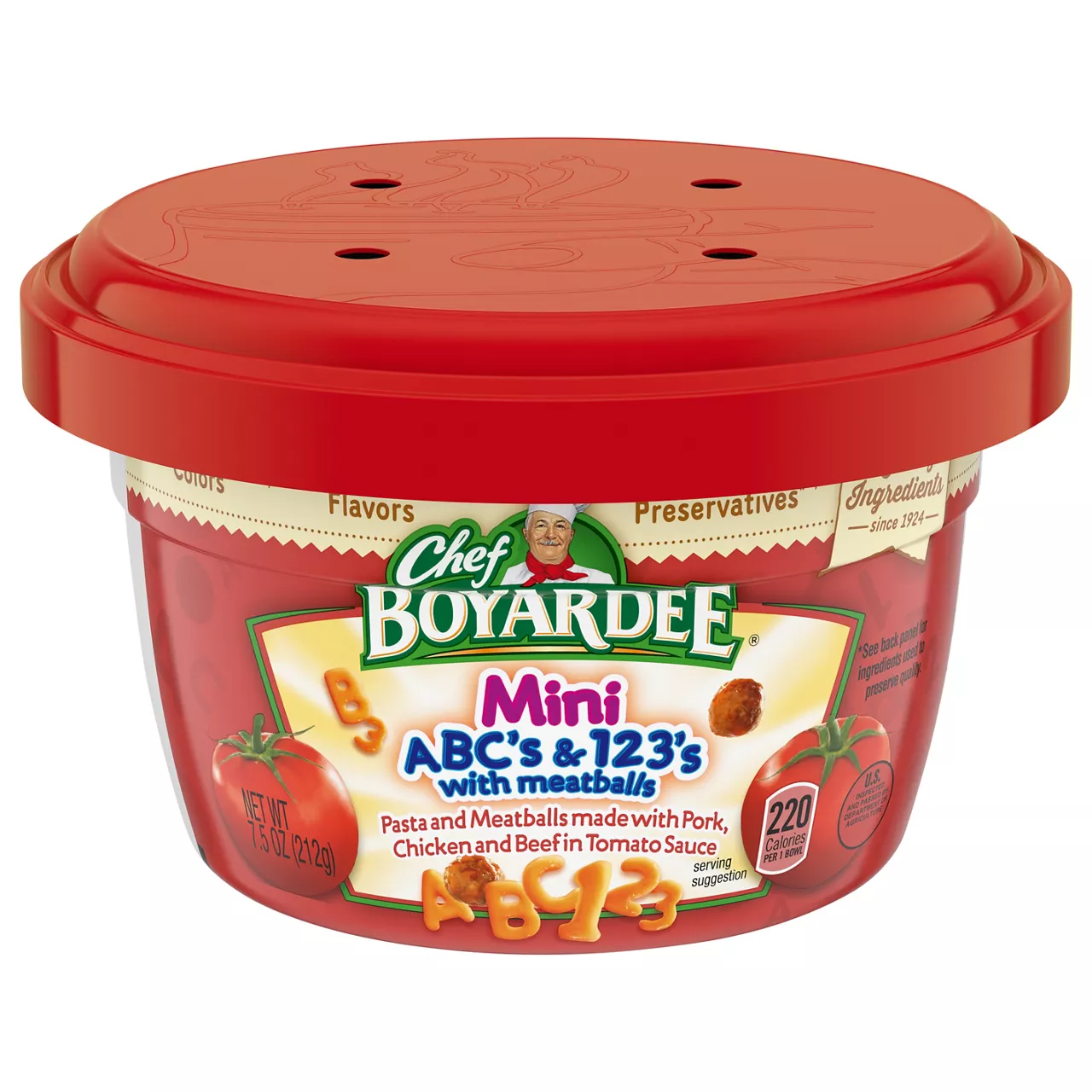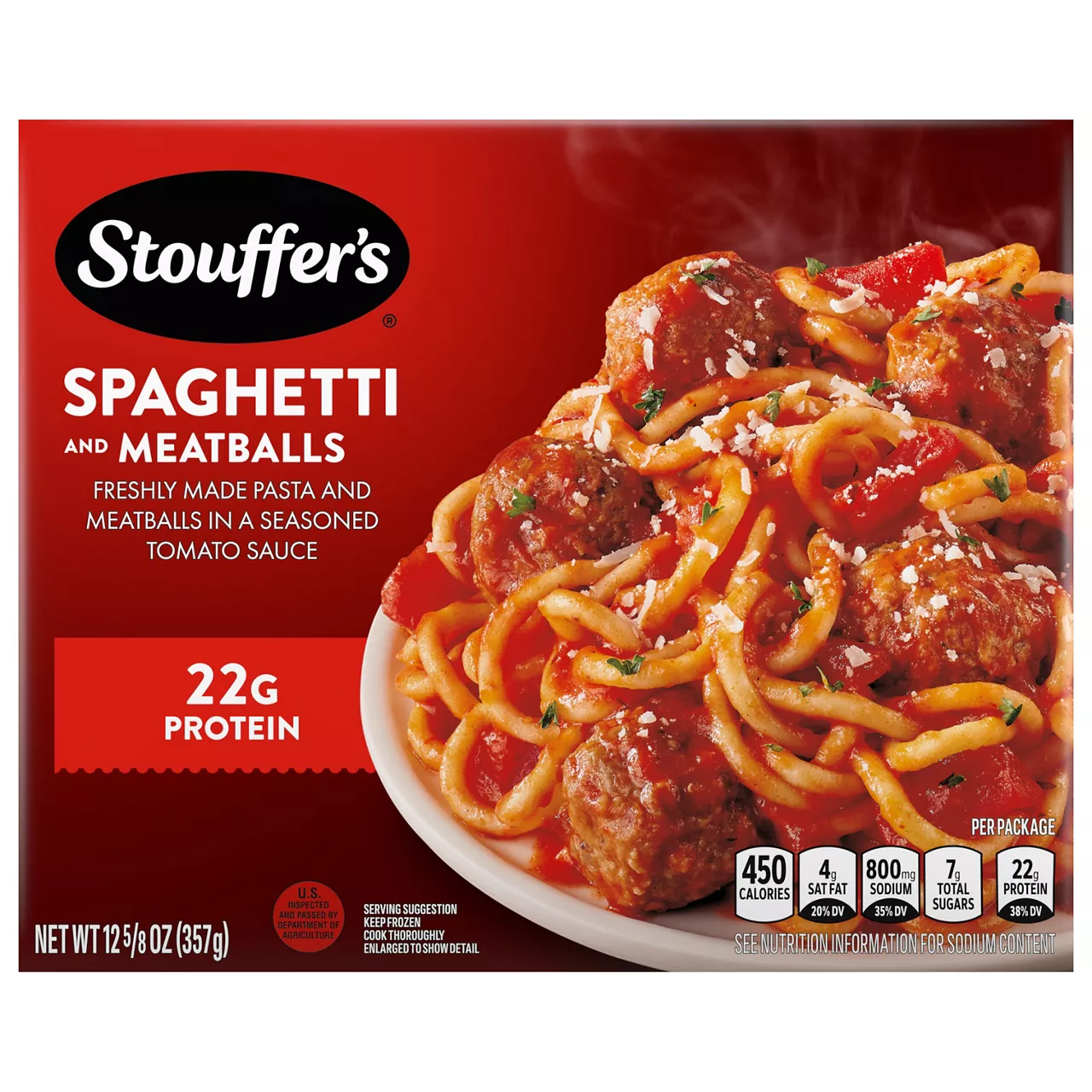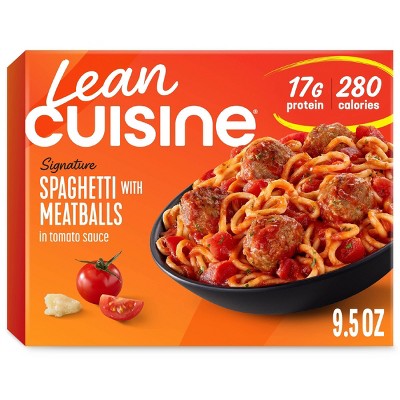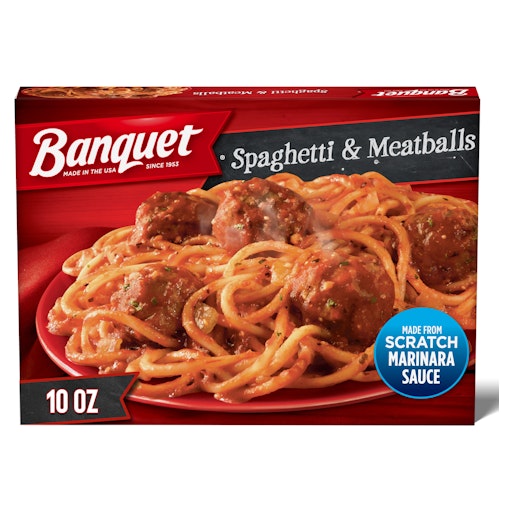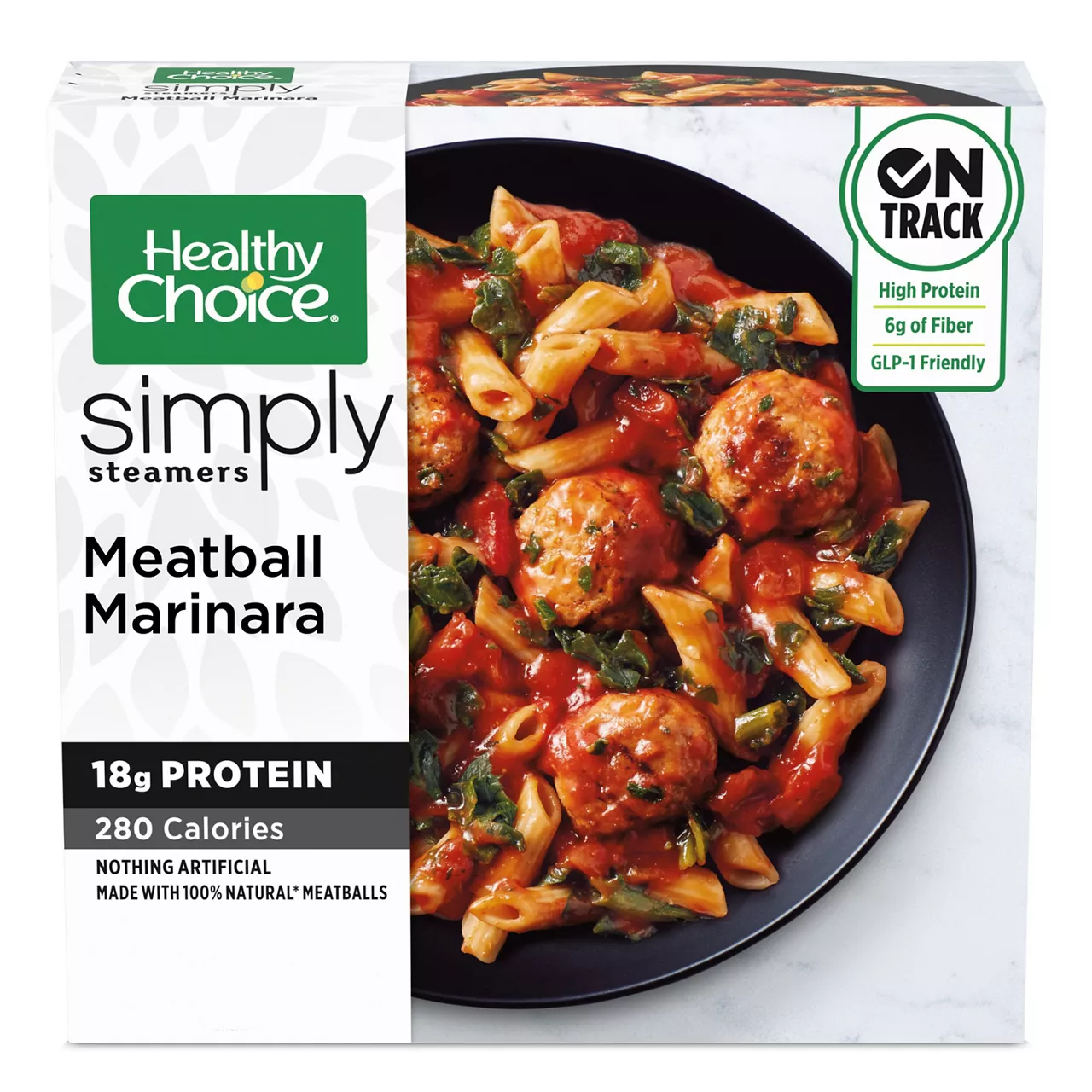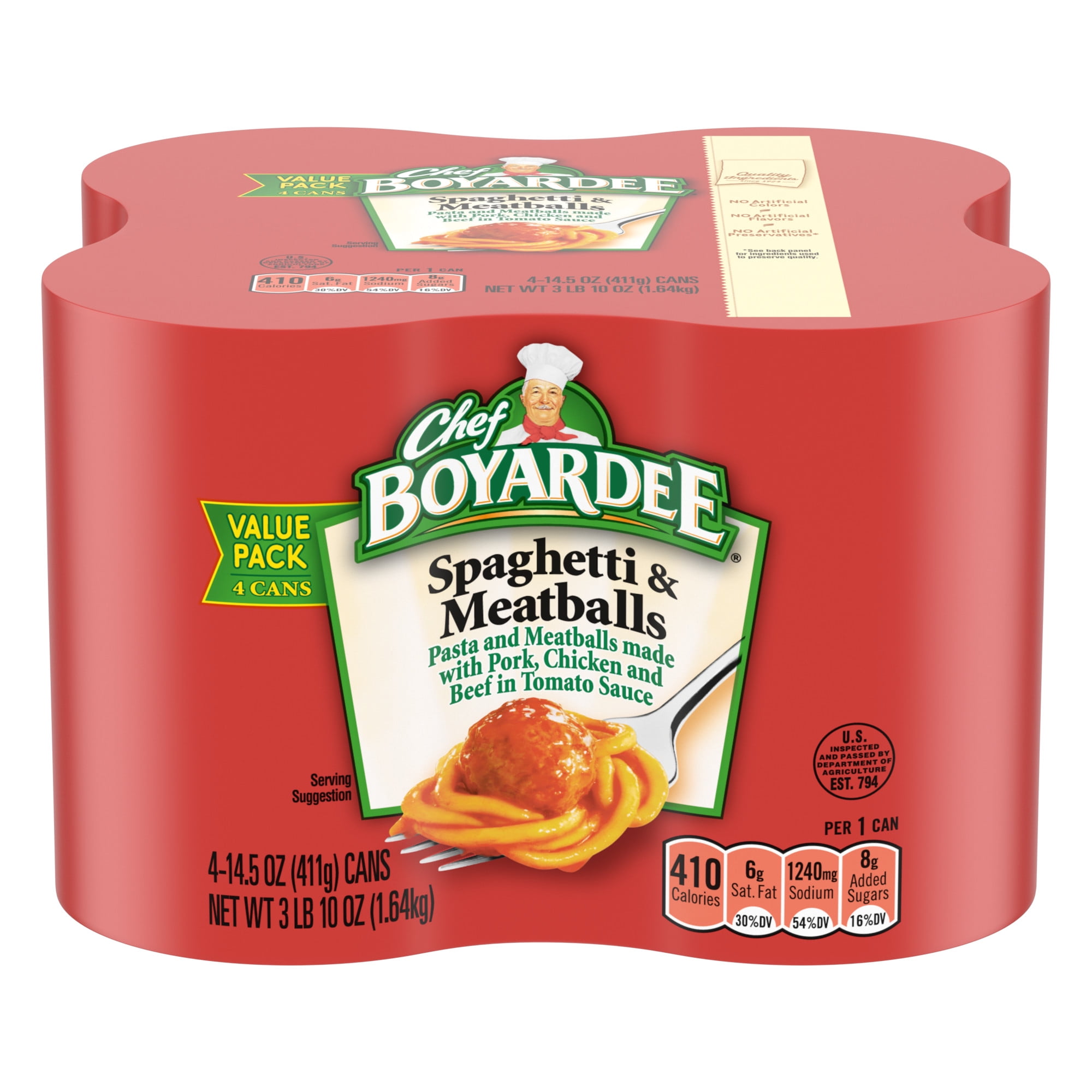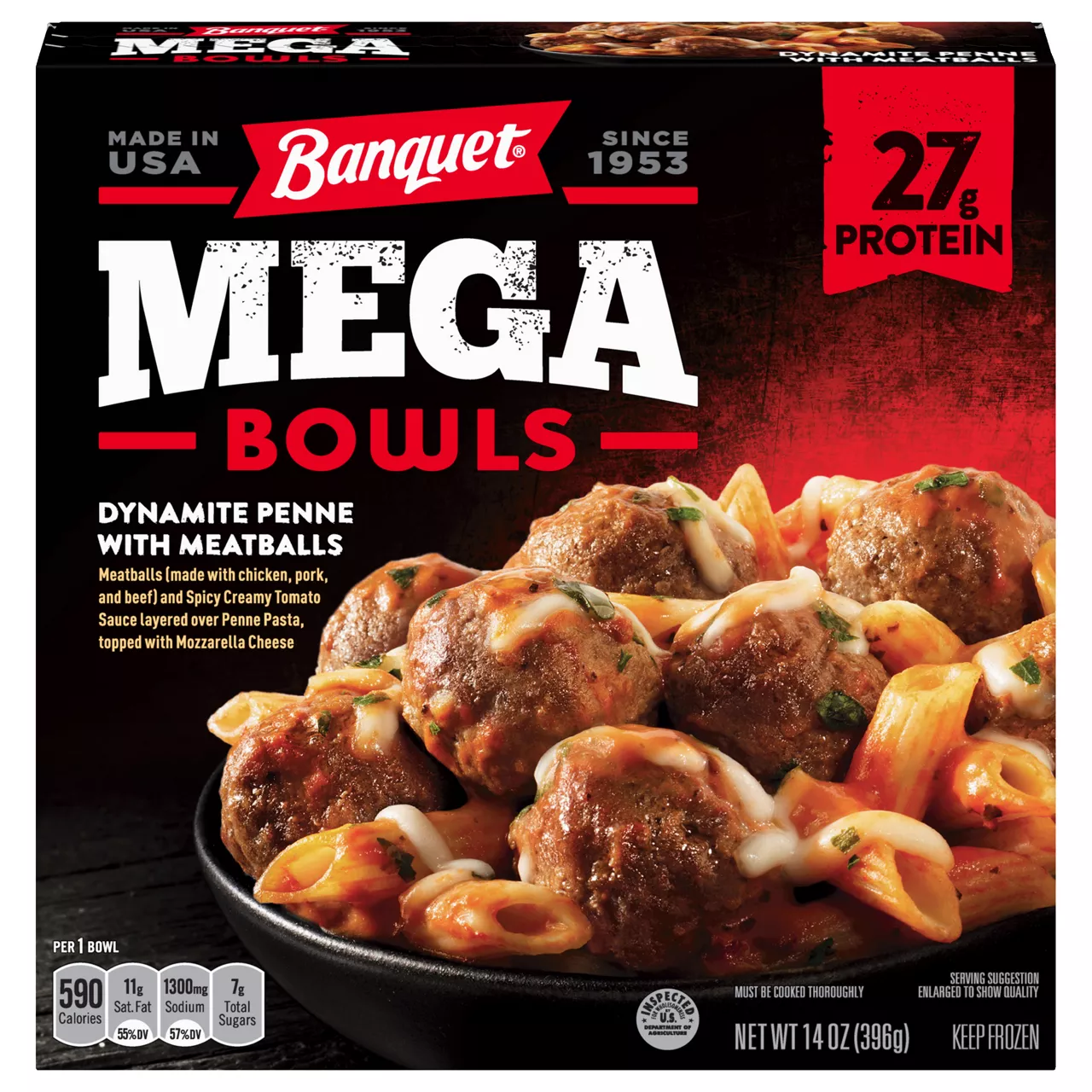MAIN DISHES
LUNCH
Pasta & Meatballs
Pasta & Meatballs is a classic Italian-American comfort food of pasta and meat in a tasty tomato sauce. This dish usually includes cooked pasta served with delicious meatballs, drenched in a rich, flavorful marinara sauce.
Adding a sprinkling of parmesan cheese or fresh basil leaves, Pasta & Meatballs becomes an ideal main course. Pleasing to both adults and children alike, this dish is perfect for a family meal or a casual dinner party. A must-have for pasta lovers, it's simple to prepare yet satisfyingly filling.
67%
CARBS
13%
FAT
19%
PROTEIN
Featured Articles
242 Pasta & Meatballs Products
Wegmans Spaghetti & Meatball, Italian, Pasta Bowl
Chef Boyardee Spaghetti & Meatballs
Chef Boyardee Mini-Bites ABC's & 123's Pasta with Meatballs
Stouffer's Spaghetti and Meatballs
Lean Cuisine Frozen Meal Spaghetti With Meatballs, Protein Kick Microwave Meal, Microwave Spaghetti Dinner, Frozen Dinner for One
Chef Boyardee Spaghetti and Meatballs, Microwave Pasta
Banquet Spaghetti & Meatballs
Meatball Marinara Meatballs With Whole Grain Penne & Spinach In A Parmesan Marinara Sauce Simply Steamers
Chef Boyardee Spaghetti and Meatballs
Banquet Mega Bowls Frozen Dynamite Penne & Meatballs
Pasta & Meatballs FAQ
What ingredients do I need to make spaghetti and meatballs?
How do I make the meatballs?
How do I cook the spaghetti?
How do I make the tomato sauce?
Can I use a different type of meat?
How can I make the sauce thicker or thinner?
What common mistakes should I avoid when making spaghetti and meatballs?
How can I store leftovers?
Expiration & Storage Tips
When does Spaghetti and Meatballs expire?
Unopened or commercially packaged spaghetti and meatballs often come with a 'best by' or 'use by' date printed on the package, and it's best to consume it by the provided date. However, they may still be safe to eat for 1-2 months beyond the 'best-by' date if stored properly. Once opened and if refrigerated immediately, the dish should be eaten within 3-4 days. If you've cooked homemade spaghetti and meatballs, you should ideally consume it within 5-7 days. Lastly, if you've frozen the dish, it can last up to 2-3 months.
How do you tell if Spaghetti and Meatballs is bad?
The indicators of spoiled spaghetti and meatballs can vary. Check for a sour smell or a slick or slimy texture, as these are common signs of bacterial growth. If the sauce has separated or the meatballs have developed a grayish color, it's likely that they have gone bad. Any visible mold is also a clear sign of spoilage. When in doubt, it's better to be safe and not consume the dish.
Tips for storing Spaghetti and Meatballs to extend shelf life
• Always store the spaghetti and meatballs in an airtight container to prevent exposure to bacteria.
• If you want to extend its shelf life, consider freezing the dish. Portion it out in freezer-safe containers or reusable freezer bags for easy access.
• Whenever possible, store the pasta and sauce separately. It helps maintain the texture of the pasta while preventing it from absorbing excess moisture from the sauce.
• If you've prepared a large batch and want to store it for later, allow it to cool completely before refrigerating or freezing. Rapid changes in temperature can lead to bacterial growth.
• If you freeze your spaghetti and meatballs, always thaw in the fridge overnight rather than leaving it on the counter. This assures it thaws in a controlled, safe temperature environment.
Health Info
Macros
29g
CARBS
11g
FAT
10g
PROTEIN
Allowed on these diets
LOW FAT
HIGH CALCIUM
LACTOSE FREE
Contains these allergens
MILK
WHEAT

